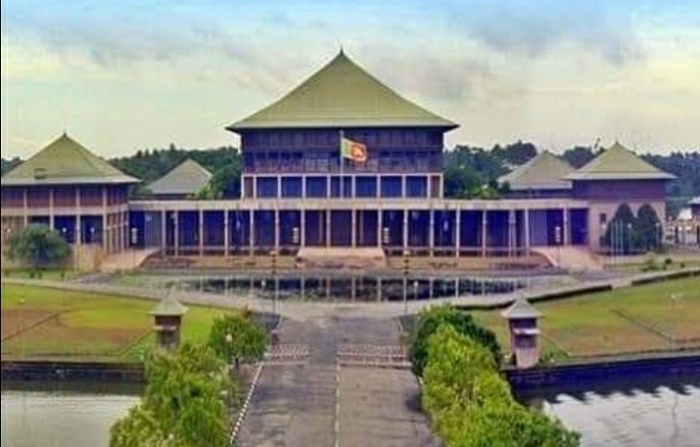
Two key bills aimed at bolstering the country’s economy will be introduced in Parliament tomorrow (May 22), Acting Finance Minister Shehan Semasinghe said.
The bills, the “Economic Transformation Bill” and the “Public Financial Management Bill,” are designed to enhance the management of public finances, thereby safeguarding against future economic downturns.
Addressing a media briefing, the Acting Finance Minister said that the legislation stems from the vision of President Ranil Wickremesinghe himself, rather than being proposed by the International Monetary Fund (IMF).
The new legislation will focus on preserving economic stability and maintaining optimal levels of public financial management to avert future economic crises.
The “Public Finance Management Bill” meanwhile will focus on enhancing accountability in managing public finances, which aligns with the IMF programme’s requirements, Semasinghe explained.
These drafts contain numerous technical intricacies aimed at bolstering confidence in the economy and maintaining the trajectory of the new economic direction implemented thus far.
Further elaborating on the Economic Transformation Bill, it holds paramount importance for the country’s economic growth. Despite experiencing economic contraction in the second and third quarters of 2023, a notable growth rate of 4.5% was achieved in the fourth quarter.
The bill also addresses reforms essential for international trade, trade agreements, and climate change mitigation efforts, it was revealed.
The establishment of a new Economic Commission in Sri Lanka, aimed at attracting investments to enhance competitiveness, fostering a conducive environment for investors, expanding international trade, establishing the National Productivity Commission, and developing export-related institutions, is also outlined in this bill.
Recently, Parliament endorsed the decisions made, particularly regarding economic transformation. In 2022, the public debt ratio stood at 128%, a figure slated to be reduced to less than 95% by 2032.
Similarly, the fiscal requirement, which was 34.6% of the gross domestic product in 2022, aims to be lowered to below 13% by 2032. Effective debt servicing is paramount, with efforts focused on establishing Sri Lanka as a debt-sustainable nation capable of meeting its obligations. The aim is to reduce the debt payment ratio from 9.4% in 2022 to below 4.5% by 2027.
A proposed bill will outline specific national goals and actions taken to address economic challenges, providing a roadmap for sustainable economic growth, debt management and economic governance. (Newswire)


